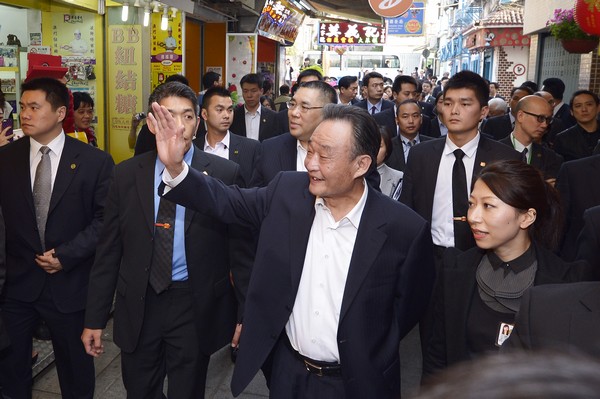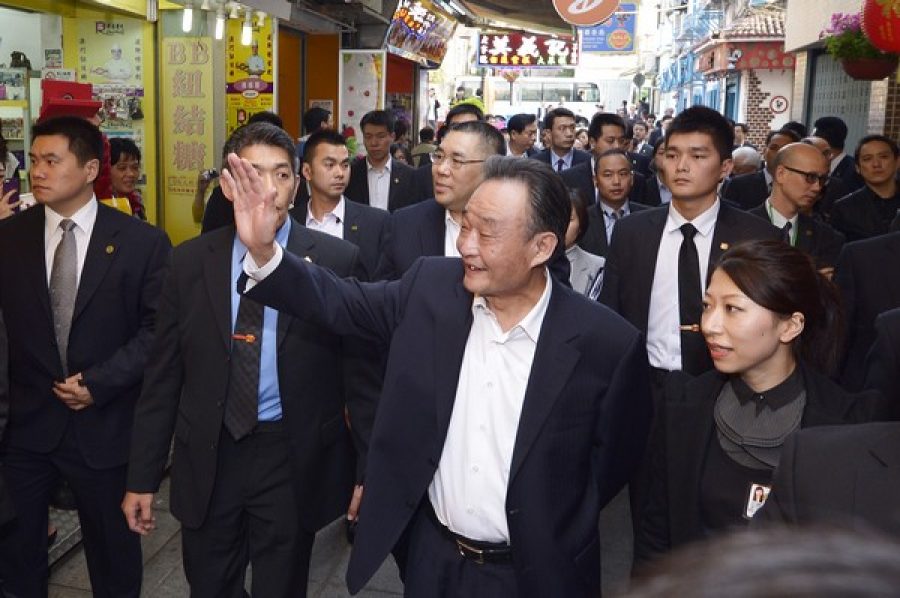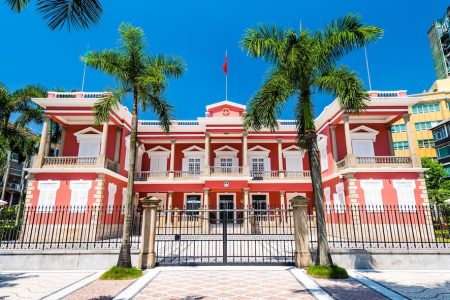Safeguarding China’s national sovereignty while preserving the prosperity of the Macau Special Administrative Region (MSAR) are core considerations in creating central government policies for Macau, the nation’s top legislator said in a speech Thursday.
They are also guiding principles for the central government in handling Macau affairs, Wu Bangguo, chairman of the National People’s Congress Standing Committee (NPCSC), said in a keynote speech at a conference marking the 20th anniversary of the promulgation of the Macau Basic Law.
Wu arrived in Macau on Wednesday for a three-day visit.
The Macau Basic Law was promulgated on March 31, 1993 and took effect on December 20, 1999, when the city’s sovereignty was returned to China. The Basic Law has acted as the cornerstone of the region’s political and legal systems.
Wu also stressed the importance of adhering to the principles of the central government’s guidelines and policies for Macau. He also said that Macau capitalist system and the mainland systems of socialism with Chinese characteristics were mutually beneficial to each other.
According to Article 5 of the Macau Basic Law, the mainland’s “socialist system and policies shall not be practised in the Macau Special Administrative Region and the previous capitalist system and way of life shall remain unchanged for 50 years.”
The central government has tailored policies regarding Macau based on these principles and the region’s conditions, according to Wu.
The focal points of the policies are to resume exercising sovereignty over Macau and maintain its stability and development, while the approach to implementing these policies relies on the principle of “one country, two systems,” he was quoted by Xinhua as saying.
The preamble of the Macau Basic Law explicitly mentions the ‘one country, two systems’ principle.
The Basic Law is a codified version of that principle and serves as a legal safeguard for Macau’s long-term prosperity, Wu said.
Wu also said Macau should extend co-operation with the mainland to strengthen its role as a world tourism and leisure centre and a business-service platform between China and the Portuguese-speaking countries.
Wu also said Macau people should thoroughly understand the systems in place in the region, as well as the relations between the central government and the local government.
To fully realise Macau’s sound governance, its high level of autonomy must be safeguarded and the central government’s authority must be supported, Wu said.
Wu said the central government fully recognises the achievements the Macau government has made in the past 14 years.
“Macau has realised that everyone is equal before the law and the people of Macao fully enjoy the rights and freedoms guaranteed by the Basic Law and other laws,” Wu said.
In accordance with the law, Macau has established its own administrative, legislative and judicial organs and elected a chief executive and legislature for three terms, showing the city’s high degree of autonomy, Wu added.
Wu also spoke highly of the unprecedented economic growth seen in Macau, noting that its GDP increased from 49 billion patacas to 292.1 billion patacas from 2000 to 2011, while its per capita GDP rose from US$14,000 to US$66,000 during the period, ranking second in Asia.
A social welfare system covering all Macau citizens has been built and people’s living standards have improved in an all-around way, according to Wu.
After the ceremony, Wu attended the opening of a commemorative gallery for the Macau Basic Law and the launch of a book on Macau’s historical changes.
Wu also visited Rua do Cunha, one of the most popular tourist attractions in Taipa, and greeted local residents and tourists.
In the evening, Wu attended a reception that marked the 100th anniversary of the Macau Chamber of Commerce.
Wu, who is will retire next month, will leave Macau today.(macaunews)






